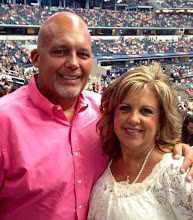I enjoyed teaching the course and there are several concepts and models that are so relevant and practical in everyday life. So, this is the first of several posts I will be making on the practical application of concepts from social psychology.
Here's a very interesting concept. It describes something we all do - and probably didn't know it had a name. Here's how it works: I am facing a decision and I am leaning one way as opposed to another? But I know I need to "seek wise counsel," so I decide to ask for some advice. But here's what I do: I choose to ask someone I think will support the direction I'm leaning. And I avoid asking the person who might not support that direction.
Actually this behavior begins very early in life. Our children - and now I have discovered my grandchildren - learn who to ask depending on the issue or desire. "Ask Dad, he always says yes. Don't ask Mom, she never let's us do that."
This is called selective exposure. This is the tendency to seek out information that supports our idea or position and to discount or avoid information that contradicts or opposes our ideas.
We do this a lot with reading books. We tend to read stuff that reinforces our position. And we don't read stuff that might criticize our positions - or expand our perspective. We avoid information that might cause us to see another point of view or another dimension to a complex issue. It reminds me of a statement I heard once - "Don't confuse me with the facts. I have made up my mind."
Recently I observed a very interesting case of selective exposure. There was a discussion concerning the need for leaders to make tough calls on personnel and provide some employees - even long-term employees - the opportunity to "thrive elsewhere."
Interestingly, support for this decision-making process was selected from Jim Collins' idea of getting the right people on the bus and getting the wrong people off the bus. This comes from his book Good to Great. I agree with this principle, and have had to make those tough decisions on numerous occasions.
But there is another principle in that book that was not selected as part of this recent discussion. Collins also discusses what he calls the Level 5 Leader. These leaders are characterized by a "paradoxical blend of professional will and personal humility." They practice what Collins calls "The Window and the Mirror."
According to this principle, when things are going well, the leader looks out the window to see who they can give the credit to. When things aren't going well, the Level 5 Leader looks in the mirror to examine himself and ask: "what do I need to change about my self in order to fix this? What could I have done differently to prevent this? What do I need to differently in the future to keep this from happening again?"
I am sure that you have worked for people who practiced the window and the mirror in the exact opposite way: They take the credit for success (mirror) and seek to blame others for failures (window). The Bohicans were very good at this.
Which brings me back to selective exposure: The recent leadership discussion focused on the "get the right people on the bus" principle. That principle supported the ideas being advanced. But that principle also needs to be balanced with the "window and the mirror." As leaders we need to first examine ourselves by spending some intense time "looking in the mirror" and asking ourselves some tough questions.
Gandhi said "I need to be the change that I want to see in the world." I think that's a good point of beginning for leaders. We need to examine ourselves and make the necessary changes in our own behaviors and attitudes first.
When we have done that, then we can deal with who should or shouldn't be on the bus.

